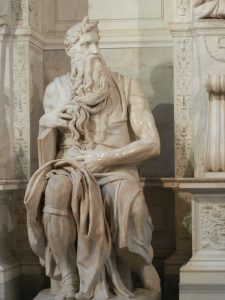 Today the Church celebrates the feast of St. Ignatius of Loyola. He was one of several great saints that lived during what could be called the Golden Age of the Church. Born in 1491, he was one of several saints the Lord raised up during the time of the Reformation.
Today the Church celebrates the feast of St. Ignatius of Loyola. He was one of several great saints that lived during what could be called the Golden Age of the Church. Born in 1491, he was one of several saints the Lord raised up during the time of the Reformation.
Other great saints of his time were some he formed as founder of the Society of Jesus, such as Francis Xavier and Aloysius Gonzaga. Other contemporary saints, just to name of few were St. John of the Cross, St. Teresa of Avila, St. Charles Borromeo, St. Philip Neri, St. Juan Diego and St. Angela Merici.
St. Ignatius was known during his time as a devoted, driven, and holy man. Converted after receiving a wound during a battle at Pamplona, he became singularly devoted to Christ. In this life of discipleship, he attracted other men while studying in Paris to join him in devoting their life to Christ and the service of His Church.
St. Ignatius had a great imagination, combined with the grace to fix his full attention in prayer upon the LORD, and in service to lead others to know and follow Christ more fully in their own life. His scriptural motto was to give glory to God in all things. He discovered Christ as the ‘treasure buried in a field’ or the ‘pearl of great price,’ for which he surrendered all else to posses. (Matthew 13: 44-46)
Perhaps today is as critical in the Church as was the time of the Reformation, given the great challenges we face today by a militant secularism. Just as God raised up numerous holy men and women to meet the needs of any and every era, such holy men and women are needed today, and are no doubt being called and formed by the LORD for today’s needs.
Are we listening to the LORD’s call in our life? Are we discovering Christ as the ‘buried treasure’ or the ‘pearl of great price?’
Today’s readings continue the story of Israel and another great leader in the service of God; Moses. We hear today how the face of Moses reflected the glory of God as a result of his face to face encounters with the Living God. This is no doubt the passage that inspired another great work of Michelangelo, the statue of Moses.
The Book of Numbers tells us that Moses was the meekest man on earth. (Numbers 12:3) Jesus spoke of the importance of being meek in the beatitudes when He said: “Blessed are the meek, for they shall inherit the earth.” (Matthew 5: 5)
So what does it mean to be meek? It is more than humility or gentleness. I believe Jesus covers this virtue in the first beatitude when he speaks of poverty of spirit. Meekness means more patience in the face of suffering. Meekness is the virtue of receiving injury without complaint.
Surely, Moses as the great forerunner of Christ, knew what it was to suffer in direct consequence of fulfilling God’s work and mission as the savior of Israel from bondage. Of course, there is no better definition of “the meek” than Christ Himself. That is why St. Paul says: “I urge you through the meekness and clemency of Christ…” (2 Corinthians 10:1)
This virtue of meekness is one of the qualities of sanctity necessary to those being formed as saints today. Are we willing to suffer insult and even assault for speaking and living the Truth of the Gospel?
St. Ignatius endured many hardships while coming under the discipline of the LORD as well as in his efforts to establish the Society of Jesus. I would guess his brother Jesuits would not describe St. Ignatius as meek, but he was certainly courageous and diligent in his love and service of Christ and His Church.
Let us continue today our search for Christ, who is the full manifestation of the Kingdom of Heaven. Let us continue our journey of faith with meekness. Let us stoke the flames and desires for holiness in our life, and allow God to form us and lead us to be the saints of the Church and in the world today.
+pde
0
